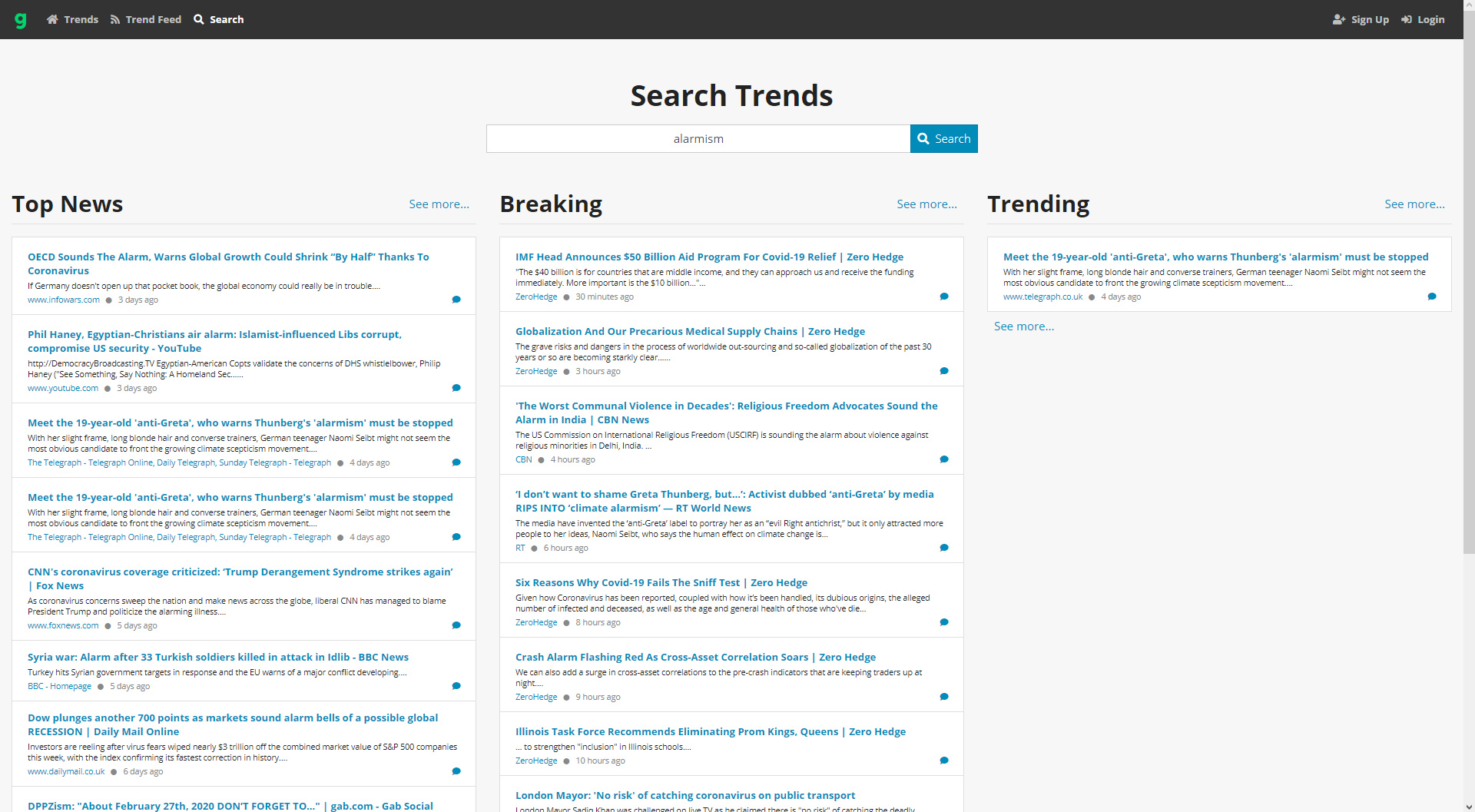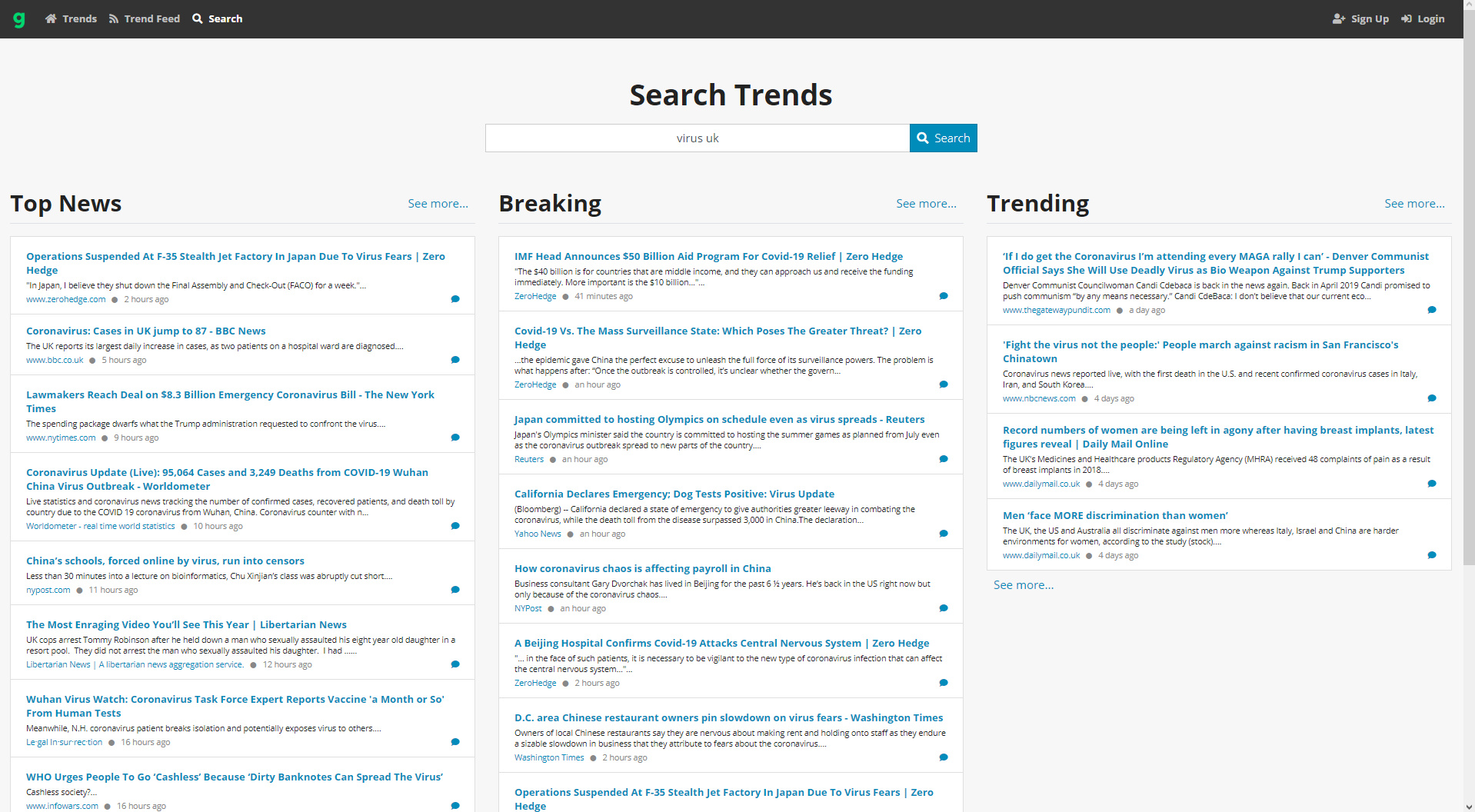Gab Trends is a new topical / news search-engine from Gab, probably best described as the ‘free-speech Twitter’. Trends doesn’t currently appear to require a sign-up. Commenting on news stories does however require signing up to the Gab’s sister-project Dissenter. Comment-counts presumably then show up on the Gab Trends search results, but not the comments themselves, which are quarantined on Dissenter. That’s probably just as well, since this is the free-speech Gab and it veers strongly toward the right-wing of politics. Though at present there doesn’t seem to be much speech of any kind going on there.
If testing Gab Trends you’ll probably want to block all images on results. In uBlock Origin that’s…
##*.column-image
Once that’s done, a broad test for keyword alarmism shows about what you’d expect…
Conservative news sites are prominent. The UK’s Daily Mail and The Telegraph newspapers, the USA’s Fox News, and I think ZeroHedge is some sort of libertarian/Bitcoin news site? Sites such as InfoWars and RT (‘official’ Russian news) will fail to pass the sniff-test for many.
A search for virus + UK showed a similar spectrum of results, but with the BBC, Reuters and Yahoo ranking highly. No weird conspiracy-theory pundits in the top results, so far as I could tell.
Without making a search Gab Trends becomes effectively an algorithmic newspaper, giving you the top items as they currently stand in Trends. In that form it veers very strongly toward the tabloid ‘crime and grime’ type of linkbait, and is not much use.
Search results for a keyword can be easily had as an RSS feed, seemingly without sign-up. So you might get something useful out of it in RSS, if you’re prepared to drill down for half an hour.
There doesn’t appear to be a list of the news sources, and on my limited tests they feel quite limited at present. One would have expected to find robust conservative magazines like The Spectator, The Federalist, The Critic, Quillette, rather than questionable stuff like the InfoWars and RT sites, but I guess that’s perhaps because the focus is on ‘breaking news’ rather than on commentary. Yet the National Review is in there, which is the U.S. equivalent of The Spectator.
Overall, it’s possibly useful if you want an RSS feed to keep track of what restaurant Milo has been thrown out of this week. But at present it seems a worse choice for tracking news than Google News + a site-blocking script able to remove the news sources you don’t care to read.


